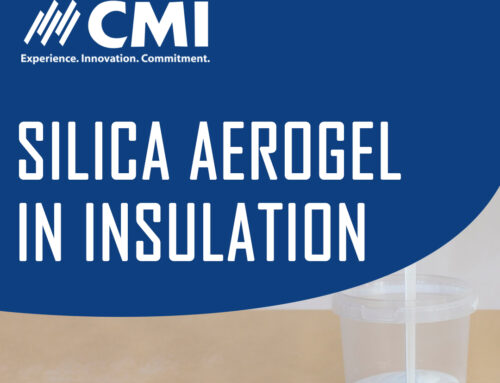Epoxy tubing is a type of polymer material widely used in various industries for its unique properties. It is made by mixing two components, an epoxy resin and a hardener, which is then cured to form a solid, durable material.
Epoxy tubes provide protection and insulation for various applications. This material is highly valued for its durability, chemical resistance, electrical insulation properties, corrosion resistance, impact resistance, thermal resistance, and flexibility.
Epoxy tubes are essential in many industries, including electronics and electrical, automotive and aerospace, medical and pharmaceutical, and food and beverage. These industries rely on the benefits of epoxy pipe to provide protection and insulation to their products, ensuring their systems’ safe and efficient operation.

One of the critical characteristics of epoxy tubing is its durability. The Polymers materials can withstand the wear and tear of everyday use, making it ideal for applications with high levels of durability.
Another essential characteristic of filament wound epoxy tubing is its chemical resistance. This chemical-resistant material can resist the damaging effects of various chemicals, making it ideal for use in industries where chemical exposure is a concern.
In addition, epoxy tubing has excellent electrical insulation properties, making it ideal for use in electrical applications where electrical insulation is required. This resistant material can effectively prevent electrical current from leaking or shorting, ensuring safe installation and efficient operation.
Thermal resistance is another crucial characteristic of epoxy tubing. This impact-resistant material can withstand high temperatures, making it ideal for high-temperature applications such as the automotive and aerospace industries.
Finally, epoxy tubing is highly flexible, allowing it to be used in various applications where flexibility is required. The Polymers Materials can bend and flex without cracking or breaking, ensuring it remains functional even in challenging environments.
Types of Epoxy Tubing
Several types of epoxy tubing are available, each designed for specific applications and industries. Some of the most common types of epoxy tubing include standard epoxy tubing, flame-retardant epoxy tubing, food-grade epoxy tubing, and high-temperature epoxy tubing.
Standard epoxy tubing is the most common type and is suitable for many applications. It is durable, flexible, and chemical resistant, making it ideal for chemical industries.
Flame-retardant epoxy tubing is designed for use in industries where fire risk is a concern. The epoxy pipe resin can resist the spread of fire, ensuring the safety of personnel and equipment in the event of a fire.
Food-grade epoxy tubing is designed for use in the food and beverage industry. This type of epoxy resin tubing is safe for use with food and beverage products and can resist the damaging effects of food and beverage chemicals.
High-temperature epoxy tubing is designed for use in high-temperature applications. The impact resistance and heat resistance helps withstand high temperatures, making it ideal for use in industries such as automotive and aerospace.

Applications of Epoxy Tubing
Due to its unique properties, epoxy pipe lining is used in various industries and epoxy applications. Some of the most common benefits of epoxy pipe include electronics and electrical applications, automotive and aerospace applications, medical and pharmaceutical applications, and food and beverage applications.
Epoxy tubing provides protection and insulation for electrical components and systems in electronics and electrical applications. This material can prevent electrical current from leaking or shorting, ensuring no current damage, faster installation, and efficient operation of electrical systems.
In the automotive and aerospace industries, epoxy tubing is the primary solution. It provides protection and insulation for various components, including fuel lines, wiring, and hoses. In addition, this material can withstand high temperatures and resist the damaging effects of chemicals, ensuring safe and efficient operation.
In the medical and pharmaceutical industries, epoxy tubing provides protection and insulation for medical devices and equipment. This material can resist the damaging effects of chemicals and is safe for medical applications, making it ideal for use in this industry.
Epoxy pipe lining is a primary plumbing material. The corrosion-resistant material prevents pipe walls from corrosion. Epoxy-lined pipe repair is the best substitute to avoid costly repairs of regular copper pipes. With epoxy tubing, one can conduct a faster installation process saving overall construction time and labor.
Finally, epoxy tubing provides protection and insulation for food and beverage processing equipment in the food and beverage industry. This material is safe for use with food and beverage products and can resist the damaging effects of food and beverage chemicals, making it ideal for use in this industry.
Advantages of using Epoxy Tubing
There are several advantages of epoxy applications. The most significant benefits include improved performance, increased longevity, cost-effectiveness, and customization.
One of the most significant advantages of using epoxy tubing is improved performance. In addition, this material provides protection and insulation for various applications, ensuring that these systems can operate safely and efficiently.
Another advantage of using epoxy tubing is increased longevity. This material can withstand the wear and tear of everyday use, ensuring that systems using epoxy tubing can last longer and require less maintenance over time.
Epoxy tubing is also cost-effective, making it a popular choice for many industries. In addition, this material can provide protection and insulation at a lower cost than many other materials, making it a cost-effective option for varied applications.
Finally, epoxy tubing is highly customizable, allowing it to be tailored to meet the specific needs of each application. This material can be molded and shaped to meet the particular requirements of each application, making it a highly versatile option for various industries.
Choosing the Right Epoxy Tubing
When choosing the proper epoxy tubing, there are several factors to consider, including environmental conditions, chemical compatibility, operating temperature, and flexibility requirements.
Environmental conditions, such as temperature and humidity, should be considered when choosing the proper epoxy tubing. This material should withstand the environmental conditions in which it will be used, ensuring that it remains functional and practical over time.
Chemical compatibility is another important factor when choosing the right epoxy tubing. This material should resist the damaging effects of the chemicals it will be exposed to, ensuring that it remains functional and effective in its intended application.
The operating temperature of the epoxy tubing should also be considered when choosing the right material. This material should withstand the operating temperature of the application, ensuring that it remains functional and practical over time.
Finally, flexibility requirements should be considered when choosing the proper epoxy tubing. This material should be able to bend and flex as required, ensuring that it remains functional and effective in its intended application.
The importance of selecting the proper epoxy tubing must be balanced. Choosing the suitable material can mean distinguishing between a system that operates safely and efficiently and one that fails and requires frequent maintenance.
Conclusion
Epoxy tubing is a highly versatile and valuable material used in various industries for its unique properties. This material is durable, flexible, chemically resistant, and has excellent electrical insulation properties, making it ideal for multiple applications.
Several types of epoxy tubing are available, including standard epoxy tubing, flame-retardant epoxy tubing, food-grade epoxy tubing, and high-temperature epoxy tubing, each designed for specific applications and industries.
Epoxy tubing is used in various industries, including electronics and electrical, automotive and aerospace, medical and pharmaceutical, and food and beverage, providing protection and insulation for multiple components and systems.
The advantages of epoxy tubing include improved performance, increased longevity, cost-effectiveness, and customization. However, factors such as environmental conditions, chemical compatibility, operating temperature, and flexibility requirements should be considered when choosing the proper epoxy tubing.
In conclusion, epoxy tubing is a highly valuable material that provides protection and insulation for diverse applications and industries. Its unique properties make it a popular choice for many industries, and its versatility and customization options ensure that it can be tailored to meet the specific needs of each application.






